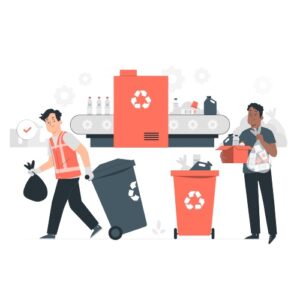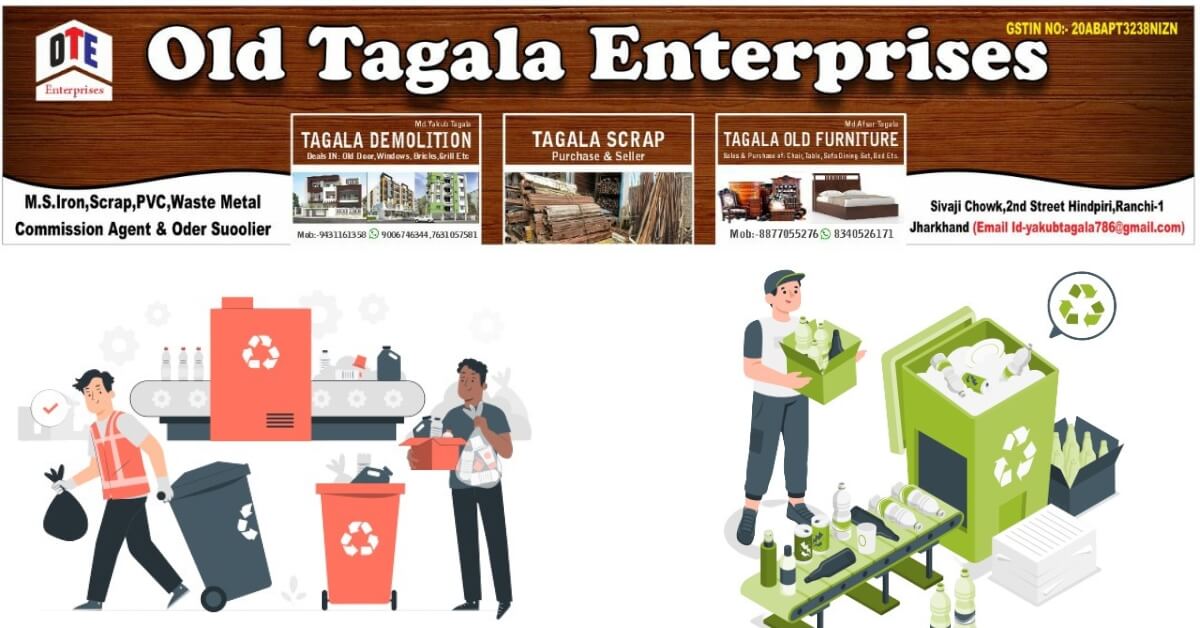Discover the fascinating journey of scrap metal recycling – from discarded junk to valuable gold. Explore the environmental significance, economic impact, and intricate steps involved in transforming scrap metal into reusable resources. Unveil the secrets of sustainability and innovation today.
In a world increasingly focused on sustainability and resource conservation, the process of scrap metal recycling stands as a shining example of turning discarded materials into valuable resources.

The journey from junk to gold is not just a metaphor; it encapsulates the remarkable transformation of discarded metal items into reusable raw materials.
This article delves into the fascinating world of scrap metal recycling, highlighting its environmental significance, economic impact, and the intricate steps involved in the journey.
The Environmental Significance:
Scrap metal recycling plays a vital role in reducing the demand for virgin resources and curbing the negative environmental impacts associated with mining and refining metals. Mining operations often lead to habitat destruction, soil erosion, and water pollution.

By recycling scrap metal, we drastically decrease the need for these harmful practices, preserving ecosystems and minimizing carbon emissions in the process.
The Economic Impact:
Beyond its environmental advantages, scrap metal recycling contributes significantly to the economy. The recycling industry generates employment opportunities in collection, processing, and distribution, fostering local economies.
 Moreover, recycling metals saves energy compared to refining raw ores, leading to reduced energy costs and less reliance on foreign resources.
Moreover, recycling metals saves energy compared to refining raw ores, leading to reduced energy costs and less reliance on foreign resources.
Scrap Electronics: What to Do With Old Gadgets
The Journey of Scrap Metal:
Embark on a captivating voyage through ‘The Journey of Scrap Metal.’ Uncover the magic as discarded pieces transform into valuable resources. Explore the collection, purification, and rebirth of metals, revealing a world of recycling innovation that benefits both our environment and economy.

- Collection and Sorting:The journey begins at collection points such as scrapyards, construction sites, and households. These facilities gather various types of metal, from aluminum and copper to steel and brass. Sorting is a crucial step, where different metals are separated to ensure optimal recycling efficiency.
- Processing:Once sorted, the scrap metal undergoes processing. This involves cleaning to remove contaminants and preparing the metal for melting. Large machinery shreds and shears the metal into manageable pieces, increasing its surface area for melting.
- Melting and Purification:The shredded metal is then melted down using high-temperature furnaces. During this process, any remaining impurities rise to the surface and are removed, resulting in purer metal. The molten metal is then cast into molds to create new raw materials.
- Manufacturing New Products:The recycled metal, now in its raw form, is used to create a wide range of new products. From car parts to kitchen utensils, construction materials to electronics, recycled metal is incorporated into everyday items, reducing the need for newly extracted resources.
- Closing the Loop:An integral aspect of scrap metal recycling is its cyclical nature. Recycled metal can itself be recycled indefinitely, creating a closed loop that minimizes waste and conserves resources.
The Scrap Metal Journey – Morecambe
Conclusion:
The journey of scrap metal recycling is a remarkable testament to human innovation and responsibility. By transforming discarded metal into reusable resources, we alleviate the strain on our environment and stimulate economic growth.
This process serves as an inspiring model for sustainable practices that promote both ecological preservation and economic prosperity. As we continue to embrace the journey from junk to gold, we contribute to a brighter, greener future for generations to come.
Other Posts To Read:
How to Turn Scrap Metal into Art: Tips and Tricks
The value of second-hand furniture and how to find high-quality pieces
How to identify and avoid common scams when buying second-hand furniture online.
The benefits of donating unwanted items to charity or non-profit organizations
